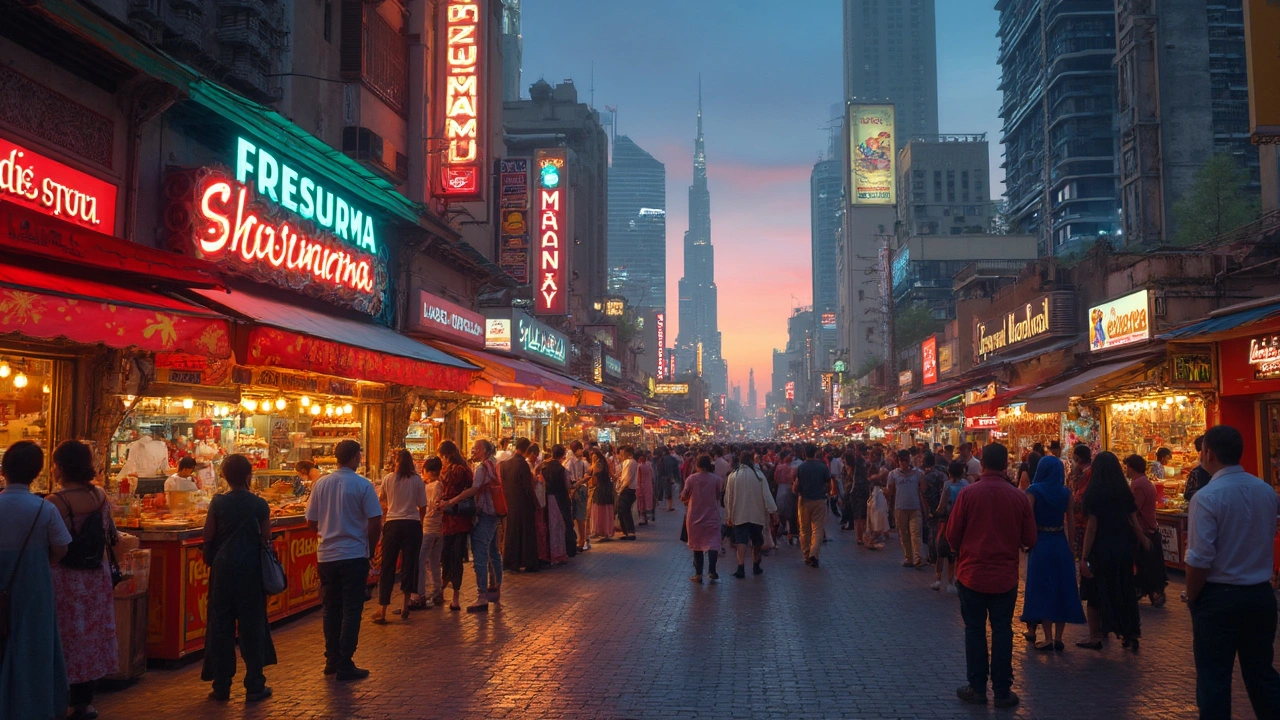Eating Out in Dubai: Your Practical Guide
If you’re landing in Dubai and wonder where to grab a bite, you’re in luck. The city mixes street stalls, high‑rise restaurants, and everything in between. Below you’ll find easy tips that help you enjoy great food without a hassle.
Where to Find the Best Eats
Start with the neighborhoods you’ll visit most. In Dubai Marina you’ll see waterfront cafés serving everything from fresh sushi to Italian pasta. Walk a few blocks inland and you’ll hit Jumeirah Beach Residence (JBR) where open‑air grills serve grilled chicken, shawarma, and fish tacos at reasonable prices.
If you love markets, head to Deira or Al Fahidi. The Gold Souk area hides tiny eateries that serve Emirati breakfasts – think balaleet (sweet noodles with egg) or chebab (crispy pancakes). These spots cost less than £5 per plate and give you a taste of local flavor.
For a splurge, try the Burj Khalifa area. Restaurants on the 124th floor combine stunning views with pricey menus, but you can still enjoy a decent lunch by booking early‑morning slots that offer set menus.
Don’t forget to use food‑delivery apps like Deliveroo, Talabat, or Zomato. They list ratings, price ranges, and whether a place serves halal food – a quick way to sort through hundreds of options.
Dining Etiquette and Practical Tips
Most restaurants in Dubai are halal, so you’ll see no pork on menus unless you’re in a hotel bar that serves alcohol. If you do want pork or alcohol, look for the hotel’s “wine and dine” venues. These places require a passport for age verification.
Tipping is straightforward: 10‑15% of the bill is normal. Some places add a service charge, so check the receipt first. If you’re paying by card, the tip can be added when you sign the receipt.
Dress codes vary. Casual smart is safe for most cafés and mid‑range restaurants. High‑end venues and clubs expect men to wear collared shirts and women to avoid overly revealing outfits. A simple shirt and neat trousers will get you through most doors.
Reservations matter, especially on weekends. Use the restaurant’s online booking system or call ahead. For popular spots like Pierchic or Al Hadheerah, book at least a week in advance.
When ordering, don’t be shy about asking about spice levels. Many chefs will adjust heat to suit you. If you’re unsure about a dish, the waiter can describe the main flavors – a quick chat saves you from an unpleasant surprise.
Pay attention to the timing of the Ramadan month. Many restaurants close early for iftar, the meal that breaks the fast. However, most hotels keep their bars open, and special buffets are offered after sunset.
Finally, keep cash handy for small cafés or street stalls. While cards dominate bigger venues, vendors often prefer cash, especially for low‑value orders.
With these basics, you’ll feel confident exploring Dubai’s food scene, whether you’re after cheap bites, family feasts, or a sky‑high dinner. Enjoy the flavors and the city’s hospitality – it’s all part of the Dubai experience.

- Jun, 7 2025
- 0 Comments
Is Food Expensive in Dubai? Real Costs and Smart Tips
Dubai's food scene ranges from ultra-luxurious to surprisingly budget-friendly, and prices can catch newcomers off guard. This article breaks down the actual costs of eating in Dubai—whether you’re grabbing something quick, dining in style, or shopping for groceries. Expect straightforward tips on where to save, what long-term visitors really pay, and how to avoid the most common (and costly) mistakes. You’ll get honest examples of what you might spend, plus local hacks to stretch your budget. Perfect for anyone staying in the city—short-term or long-term—who wants their money to go further.
read more